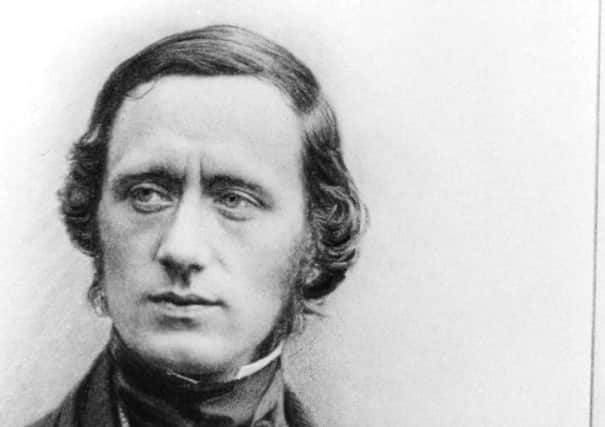The great Yorkshire composer who burned himself out


Near the entrance of the Novotel in Sheffield city centre, between a fire exit and the door to the Gas Meter Room, is a small plaque. It reads: “Sir William Sterndale Bennett, composer, was born in the house which formerly stood on this site.” That name again? Just remind me...
Bennett, whose bicentenary it is this week, is being widely celebrated this year, was one of the great and the good – no, one of the greatest and the best – of Victorian musical life. He was regarded as the outstanding British musician of his generation; Gladstone recommended his knighthood; and Queen Victoria attended his funeral in Westminster Abbey in 1875.
Advertisement
Hide AdAdvertisement
Hide AdBennett’s friend Mendelssohn often conducted his music, Schumann called him “an angel musician”, and he became Principal of the Royal Academy of Music and conductor of the Leeds Festival. Now he is almost forgotten, though Sheffield Cathedral, where his father was organist, boasts a modest memorial to him.
A mile or so across the city, on a chilly Monday evening, the Sterndale Singers are rehearsing this piously appealing piece for their bicentenary concert. It will celebrate a man who might be remembered as Yorkshire’s greatest composer (give or take Delius) had he not burned himself out with overwork.
With nice irony, it turns out that the 30-strong Sterndale Singers are named not after Sterndale Bennett but after Sterndale Road, near the hall where they used to rehearse. Now they’re ranged in a semi-circle in an upstairs room at St Mark’s Church in Broomhill, one of Sheffield’s choicest suburbs, where Robert Webb, their ebullient conductor, is guiding them through the anthem.
The bicentenary concert, on Saturday, will be introduced by Barry Sterndale-Bennett, the composer’s great great grandson. “A lot of people ask me whether I’m related to him and it never ceases to surprise me that they know about him,” he says. “When he died he drifted into the footnotes of musical history, but there’s been a great revival of interest in him in recent years.”
Advertisement
Hide AdAdvertisement
Hide AdOrphaned at three, WSB, as he came to be known, played the Hallelujah Chorus on the piano two years later after hearing it just once. At eight he joined the choir of King’s College, Cambridge. At ten he enrolled at the Royal Academy of Music. And at 17, he played the first of his five piano concertos at Windsor Castle for King William IV.
Schumann took him up and dedicated one of his most important piano works, the Symphonic Studies, to him. But his impetus faltered. By the age of 25, he had, by common consent, written most of his best music.
His creativity dried up when he was in his twenties. He composed more intermittently, and concentrated instead on conducting. He led the first English performance of Bach’s St Matthew Passion and in 1858 premiered his cantata The May Queen at the first Leeds Festival, celebrating the opening of the city’s Town Hall. “He was obviously a real star when he was very young, but his music was very much of his time,” says Robert Webb.
The programme Webb has drawn up for the bicentenary concert intersperses choral works with songs and piano pieces. It includes the part- song Come Live with Me, setting Christopher Marlowe’s poem (subtitled The Passionate Shepherd to his Love).
Advertisement
Hide AdAdvertisement
Hide AdBarry Sterndale-Bennett’s hopes the bicentenary will boost his reputation. “He’s getting a good hearing this year and there are a lot of recordings on the market and more to come,” he says. “Hopefully there will be a bunch of people who hear the music and say: ‘It would be nice to do this again.’”
The Sterndale Singers’ concert is at All Saints Church, Ecclesall, Sheffield on April 16. See www.sterndalesingers.org.uk